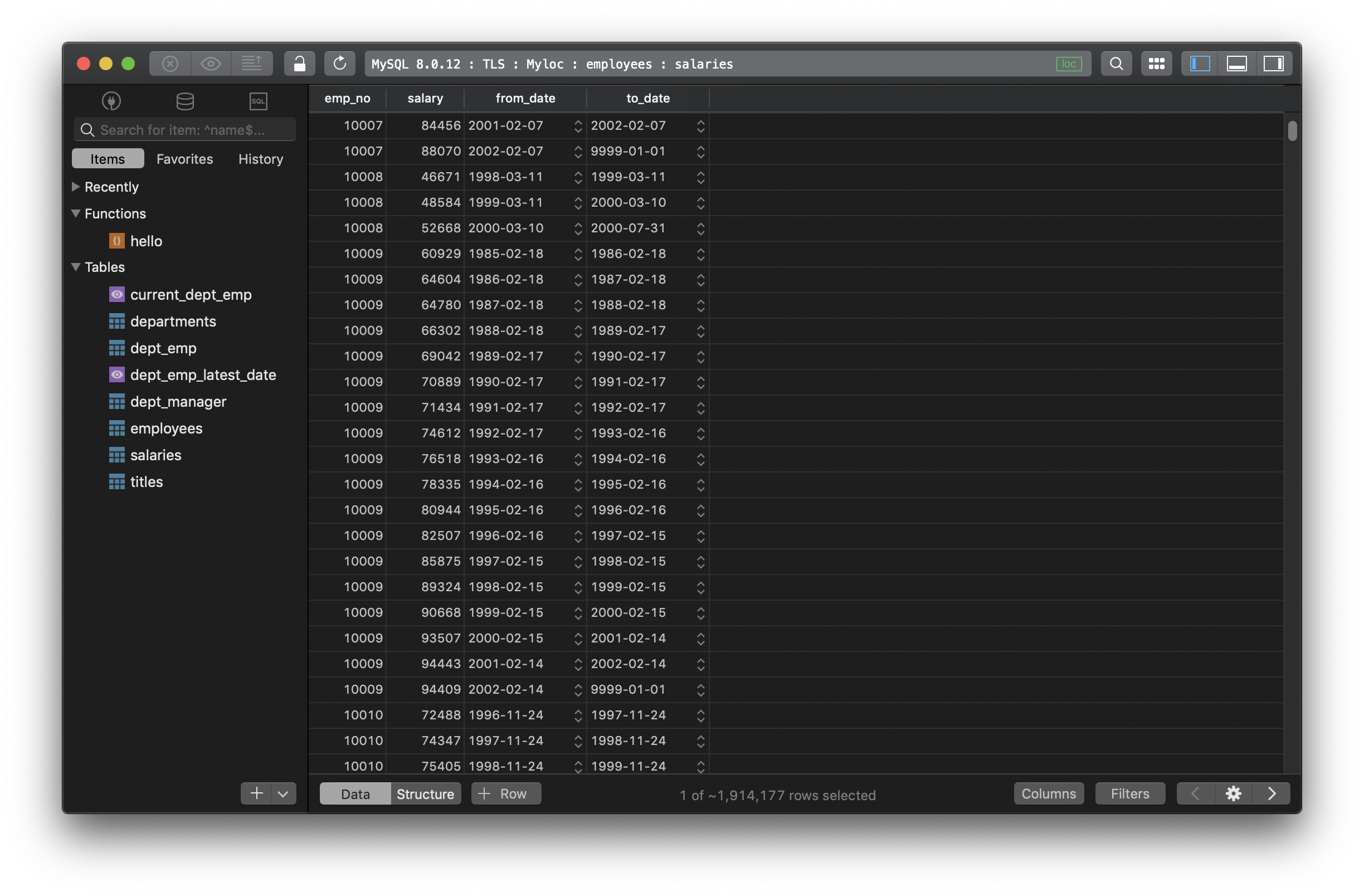How to count unique rows in MySQL with COUNT DISTINCT?
Overview
In MySQL, COUNT() function returns the number of rows in a table.
COUNT(DISTINCT expression) returns the number of rows that contain non NULL values as the result of the specified expression.
Syntax
To to use COUNT(DISTINCT) in a SELECT statement:
SELECT
COUNT(DISTINCT expression)
FROM
table_name;
Example
We have table sales:
| item | customer_name |
|---|---|
| book | Alex |
| pen | Bob |
| book | Alex |
| book | Jim |
| shoes | Jim |
| pen | Bob |
| backpack | Bob |
| book | Bob |
| wallet | Alex |
| wallet | Alex |
| book | Bob |
| backpack | Jim |
Since a customer might have multiple purchases, the customer_name field has duplicate values. So to count the number of unique customers:
SELECT
COUNT(DISTINCT customer_name)
FROM
sales;
The result is 3.
A customer might purchased one item multiple times, to see how many unique items each customer already purchased, we can use GROUP BY:
SELECT
customer_name,
COUNT(DISTINCT item) as unique_item
FROM
sales
GROUP BY
customer_name;
The result is:
| customer_name | unique_item |
|---|---|
| Alex | 2 |
| Bob | 3 |
| Jim | 3 |
We can also include WHERE to count the number of unique customers that bought the item book:
SELECT
COUNT(DISTINCT customer_name) book_customers
FROM
sales
WHERE
item = 'book';
The result is 3.
Need a good GUI tool for databases? TablePlus provides a native client that allows you to access and manage Oracle, MySQL, SQL Server, PostgreSQL, and many other databases simultaneously using an intuitive and powerful graphical interface.
Not on Mac? Download TablePlus for Windows.
On Linux? Download TablePlus for Linux
Need a quick edit on the go? Download TablePlus for iOS
